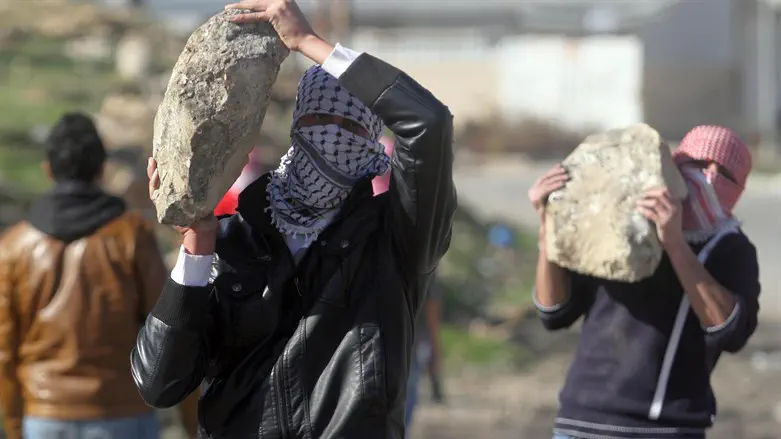
Stephen M. Flatow is President of the Religious Zionists of America (RZA) He is the father of Alisa Flatow, who was murdered in an Iranian-sponsored Palestinian Arab terrorist attack in 1995 and the author of A Father’s Story: My Fight for Justice Against Iranian Terror. Note: The RZA is not affiliated with any American or Israeli political party.
News reports and headlines from pro-Palestinian media sources were quick to announce this week that a Palestinian-US teenager died after being shot by an IDF soldier. Al Jazeera reported that “Israeli forces have opened fire on a group of children in the occupied West Bank, killing a 14-year-old Palestinian American boy and wounding at least two others.”
Good heavens, it was “a group of children,” says the report. But what was left out of the report was that these “children” were busy trying to kill drivers along Israel’s Route 60, the only road traversing Samaria from north to south giving access to Jewish communities in Samaria. As a result, Route 60 has become a favorite site for terrorists to launch deadly attacks against Israelis and other travelers. And those of us (non-Arabs) who use the road had better install rock proof windshields and ride in protected buses.
Rock throwing terror incidents are a more than everyday feature of life in Samaria and Yehuda. In 2024 there were 3,668 instances of rock-throwing. Add to those 843 attacks with Molotov cocktails, 671 attempts to blind drivers with laser pointers, 526 explosive charges, 364 cases of arson and 179 terrorist shootings, and you will see there’s a war going on. Not as highly publicized as the one in Gaza or what the IDF has done in Lebanon, but a war, nonetheless.
For years, major American news media outlets have portrayed Palestinian Arab rock-throwers as “peaceful” protesters. New York Times columnist Thomas Friedman infamously once included rock-throwing in his list of types of "non-violent resistance" that he hopes Palestinian Arabs will carry out. Well, Friedman got his wish, but at the cost of a young life.
There are strategies employed by rock-throwers. Long ago they figured out that a rock can cause a lot more damage if thrown at an automobile moving at high speed. In fact, that's how one Palestinian Arab rock-thrower died by his own hand--one of the rocks he threw at an Israeli car near the city of Emanuel bounced back and struck him in the head at an extremely high velocity, because of the speed of the automobile.
Palestinian Arab rock-throwers murdered U.S. citizen Asher Palmer and his one-year-old son, Yonatan, in 2011. By throwing the rocks from a fast-moving car at Palmer's car, which was traveling in the other direction, they doubled the impact of the rocks. That crushed the front windshield, causing the car to crash and killing both Asher and Yonatan.
In the United States, rock-throwing is not dismissed as child’s play. In a famous instance in 1990, three teenagers threw rocks at cars on the Capital Beltway in Washington, D.C., injuring thirty drivers or passengers. One was a girl who suffered irreversible brain damage. The attackers were convicted of "assault with intent to murder”; they were each sentenced to 40 years in prison. Appropriately, an editorial in the Washington Post asked, "What's the difference between assault with a deadly weapon--a shooting--and assault with rocks that hit cars at potentially lethal speeds?"
More recently, five teenagers in Arizona have been charged with murder in connection with a rock throwing incident that left a father of four dead after the large rock came through the windshield and struck him in the head, face, and chest.
Harmless, “non-violent resistance?” I think not.
A young man’s life has been wasted, and his parents are being told he’s a “martyr” and eligible for “pay to slay” payments from the Palestinian Authority. Instead of asking how much they’ll receive, they should ask themselves “where was I when my son decided to try to kill Jews?”